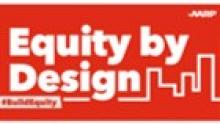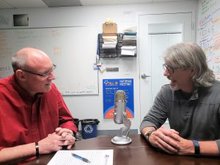0
Interactive
Community:
May 24, 2023
Ever wondered what health centers are close to your public housing property? Check out this map to learn more.
Authored by:
Topics: Health, Housing
 Shared by
Shared by
posted a
on Mar 6, 2025
Ever wondered what health centers are close to your public housing property? Check out this map to learn more.
0
Interactive
Community:
May 1, 2023
Play is not only beneficial but essential for people of all ages. Today, there is increasing interest in the benefits of not only play itself, but specifically people from younger and older generations playing together. The built environment in our communities plays a critical role in facilitating this intergenerational engagement and play. Approaches such as Intergenerational Contact Zones (ICZs) introduce strategies for promoting social inclusion and belonging, employing novel ways of planning and designing public spaces to create intergenerationally enriched environments that provide mutual benefits as well as counteract ageism and age-related stereotypes.
Authored by: Stephanie Firestone and Julia Glassman for AARP Equity by Design- Principles in Action
Topics: Community development, Dual-generation, Exercise, Health, Seniors, Youth
 Shared by Sandra Ware
Shared by Sandra Ware
Sandra Ware posted a
on Jun 8, 2023
Stephanie Firestone and Julia Glassman for AARP Equity by Design- Principles in Action
Play is not only beneficial but essential for people of all ages. Today, there is increasing interest in the benefits of not only play itself, but specifically people from younger and older generations playing together.
0
Interactive
Community:
Jun 1, 2023
Virtual
Authored by: Benton Institute for Broadband and Society
Topics: Broadband, Data sharing, Low-income
 Shared by Sandra Ware
Shared by Sandra Ware
Sandra Ware posted a
on Jun 1, 2023
Benton Institute for Broadband and Society
0
Podcast
Community:
Mar 29, 2023
Climate change will affect everyone, so what measures can U.S. communities take now to adapt and thrive? From water-saving landscapes to strategic retreats from hazard-prone areas, experts Colleen Moore and Alexis St. Juliana explore a range of promising responses they’ve identified and explain why historically vulnerable communities must be part of the solutions.
Authored by: Colleen Moore and Alexis St. Juliana for Abt Associates
Topics: Community development, Energy, Environmental Resiliency/Climate Change, Green, Housing, Low-income, Research, Sustainability
 Shared by Sandra Ware
Shared by Sandra Ware
Sandra Ware posted a
on Mar 30, 2023
Colleen Moore and Alexis St. Juliana for Abt Associates
Climate change will affect everyone, so what measures can U.S. communities take now to adapt and thrive? From water-saving landscapes to strategic retreats from hazard-prone areas, experts Colleen Moore and Alexis St.
0
Interactive
Community:
Aug 3, 2021
Use this toolkit to assist in pursuing partnerships with school districts to provide afterschool and summer programs to support student recovery. Districts must spend a minimum of 20% of their funds on learning loss, which explicitly calls out summer and afterschool programs as an allowable use.
Authored by: Afterschool Alliance
Topics: Education, Funding, Out-of-school time
 Shared by Kirsten Greenwell
Shared by Kirsten Greenwell
Kirsten Greenwell posted a
on Aug 3, 2021
Use this toolkit to assist in pursuing partnerships with school districts to provide afterschool and summer programs to support student recovery.
0
Podcast
Community:
Sep 28, 2020
The National Initiative on Mixed-Income Communities of the Jack, Joseph and Morton Mandel School of Applied Social Sciences of Case Western Reserve University has launched a new podcast.
The new podcast, “Bending the Arc” is hosted by Dr. Mark Joseph and Dr. Amy Khare.
Join us to learn about strategies to make communities diverse, vibrant places of well-being and opportunity. Listen to the trailer and the first three episodes wherever you listen to podcasts.
Authored by: Mark Joseph and Amy Khare for CASE WESTERN RESERVE UNIVERSITY
Topics: Community development, Healthy homes, Vision
 Shared by Housing Is
Shared by Housing Is
Housing Is posted a
on Oct 29, 2020
Mark Joseph and Amy Khare for CASE WESTERN RESERVE UNIVERSITY
The National Initiative on Mixed-Income Communities of the Jack, Joseph and Morton Mandel School of Applied Social Sciences of Case Western Reserve University has launched a new podcast.
The new podcast, “Bending the Arc” is hosted by Dr. Mark Joseph and Dr.
0
Podcast
Community: Postsecondary
May 28, 2020
Community colleges graduation rates remain low. Some studies have shown that students who enroll in summer courses are more likely to stay on track and graduate, yet despite these benefits most college students do not attend during the summer.
So why don’t students attend, and how can colleges encourage more of them to enroll in the summer? To answer these questions MDRC launched the Encouraging Additional Summer Enrollment — or EASE — project in partnership with the Ohio Association of Community Colleges and 10 community colleges in Ohio. MDRC designed, implemented, and tested two interventions to encourage summer enrollment, using insights from behavioral science, a study of how people make decisions. Both interventions worked to increase enrollment, and both could be operated at a relatively low cost
Authored by: Leigh Parise for MDRC
Topics: Attendance, Education, Post-secondary, School-readiness, Workforce development
 Shared by Housing Is
Shared by Housing Is
Housing Is posted a
on Oct 6, 2020
Community colleges graduation rates remain low.
0
Podcast
Community:
Jun 13, 2019
An interview with Emily Yu, MBA, the Executive Director of the BUILD Health Challenge, an All In partner initiative that supports local collaborations between community-based organizations, health departments, and hospitals/health systems that are working to address important health issues in their communities.
Authored by: All In: Data for Community Health
Topics: Data sharing, Health, Partnerships
 Shared by Housing Is
Shared by Housing Is
Housing Is posted a
on Jun 13, 2019
All In: Data for Community Health
An interview with Emily Yu, MBA, the Executive Director of the BUILD Health Challenge, an All In partner initiative that supports local collaborations between community-based organizations, health departments, and hospitals/health systems that are working to address important health issues in their
0
Podcast
Community:
Jun 4, 2019
Truly understanding all the dimensions of the nation's housing affordability crisis requires listening to those with lived experience – people who have experienced homelessness and housing instability. In this episode, we look at issues of affordable housing through the stories of seven people across the country who have been directly impacted. These stories were captured by the campaign's partner at the "Where Will We Live" campaign at the National Housing Trust and Enterprise Community Partners. "Where Will We Live" amplifies the voices of those with lived experience and arms them with the knowledge to take action to ensure affordable housing resources are protected and expanded.
Authored by: Opportunity Starts at Home
Topics: Homelessness, Housing, Partnerships
 Shared by Housing Is
Shared by Housing Is
Housing Is posted a
on Jun 4, 2019
Opportunity Starts at Home
Truly understanding all the dimensions of the nation's housing affordability crisis requires listening to those with lived experience – people who have experienced homelessness and housing instability.
0
Podcast
Community:
Padma Thangaraj, MS, PMP, is the Vice President of Information Services & Analytics at All Chicago Making Homelessness History, a nonprofit organization that is working to integrate housing, health, and human services data to coordinate care for Chicago residents that are experiencing housing insecurity or homelessness. As one of the pilot awardees of DASH CIC-START, All Chicago worked to refine their mechanisms for exchanging data between hospitals, health care payers, and the county’s Homeless Management Information System (HMIS). She joined the podcast to share her lessons learned and advice for others working to improve improve residential stability and health outcomes through the integration of HMIS and other data.
Authored by: All In: Data for Community Health
Topics: Data sharing, Health, Homelessness, Housing, Midwest
 Shared by Housing Is
Shared by Housing Is
Housing Is posted a
on May 2, 2019
All In: Data for Community Health
Padma Thangaraj, MS, PMP, is the Vice President of Information Services & Analytics at All Chicago Making Homelessness History, a nonprofit organization that is working to integrate housing, health, and human services data to coordinate care for Chicago residents that are experiencing housing in
0
Interactive
Community:
NHC’s annual release of Paycheck to Paycheck provides insights into the ability of working households to afford typical housing in metropolitan areas across the country. The published report highlights the housing affordability challenges of workers within the construction industry across 259 metropolitan areas. See our methodology for more information on how we come up with our numbers (or use the same methodology to do your own analysis).
Authored by: National Housing Conference
Topics: Homelessness, Housing, Legislation & Policy, Low-income
 Shared by Housing Is
Shared by Housing Is
Housing Is posted a
on May 1, 2019
National Housing Conference
NHC’s annual release of Paycheck to Paycheck provides insights into the ability of working households to afford typical housing in metropolitan areas across the country.
0
Interactive
Community:
Self-paced courses for home visitors and supervisors and webinars that cover: the basics of home visiting, foundations of infant mental health in home visiting, domestic violence in home visiting, substance abuse in home visiting, the impact of trauma on home visiting, building engaging and collaborative relationships with families, and home visiting with families during pregnancy.
Authored by: The Ounce
Topics: Child welfare, Early childhood, Health, Home visiting
 Shared by Housing Is
Shared by Housing Is
Housing Is posted a
on Apr 29, 2019
Self-paced courses for home visitors and supervisors and webinars that cover: the basics of home visiting, foundations of infant mental health in home visiting, domestic violence in home visiting, substance abuse in home visiting, the impact of trauma on home visiting, building engaging and collabor
0
Interactive
Community:
Displacement tracts are those showing strong economic expansion and a net decline in low-income population. Concentration tracts are those showing strong economic decline and a net increase in low-income population.
Authored by: Institute on Metropolitan Opportunity at the University of Minnesota Law School
Topics: Community development, Low-income, Research
 Shared by Mica O'Brien
Shared by Mica O'Brien
Mica O'Brien posted a
on Apr 18, 2019
Institute on Metropolitan Opportunity at the University of Minnesota Law School
Displacement tracts are those showing strong economic expansion and a net decline in low-income population. Concentration tracts are those showing strong economic decline and a net increase in low-income population.
0
Podcast
Community:
This podcast episode features the work of the Hunterdon County Partnership for Health, a multi-sector coalition that includes over 60 community agencies that share a common interest in improving health in Hunterdon County, NJ. Kim Blanda is a Project Director at Hunterdon Healthcare, Dr. Rose Puelle is a Senior Director of Population Health at Hunterdon Healthcare, and Karen DeMarco is the Director of the Hunterdon County Department of Health. Together, they are working on a project funded by New Jersey Health Initiatives (NJHI) focused on healthier weight as a mechanism for improving community health. The Partnership is addressing obesity-related social determinants of health related to access and transportation, mental health and healthy behaviors.
Authored by: All In: Data for Community Health
Topics: Data sharing, Health, Nutrition, Obesity, Partnerships
 Shared by Housing Is
Shared by Housing Is
Housing Is posted a
on Apr 8, 2019
All In: Data for Community Health
This podcast episode features the work of the Hunterdon County Partnership for Health, a multi-sector coalition that includes over 60 community agencies that share a common interest in improving health in Hunterdon County, NJ. Kim Blanda is a Project Director at Hunterdon Healthcare, Dr.
0
Interactive
Community:
The Legal Bibliography is collection of 100+ papers, toolkits and other materials focused on privacy, consent and policy documentation. Co-developed by the Network for Public Health Law and Data Across Sectors for Health (DASH), the Bibliography is a growing resource for lawyers and community data practitioners, intended to support local collaboratives in their efforts to share data across sectors.
Authored by: Data Across Sectors for Health (DASH) and Network for Public Health Law (NPHL)
Topics: Criminal justice, Data sharing, Education, Health, Homelessness, Housing, Mental health, Partnerships, Safety
 Shared by Housing Is
Shared by Housing Is
Housing Is posted a
on Apr 8, 2019
Data Across Sectors for Health (DASH) and Network for Public Health Law (NPHL)
The Legal Bibliography is collection of 100+ papers, toolkits and other materials focused on privacy, consent and policy documentation.
0
Interactive
Community:
We're creating the foundations of change. Together, we can provide more families with access to a safe place to live.
Authored by: Freddie Mac, Duty to Serve
Topics: Community development, Housing, Legislation & Policy
 Shared by Housing Is
Shared by Housing Is
Housing Is posted a
on Apr 8, 2019
Freddie Mac, Duty to Serve
We're creating the foundations of change. Together, we can provide more families with access to a safe place to live.
0
Interactive
Community:
Resources from Ascend at The Aspen Institute
Authored by: Ascend: The Aspen Institute
Topics: Asset building, Child welfare, Dual-generation, Early childhood, Family engagement, Research, Youth
 Shared by Mica O'Brien
Shared by Mica O'Brien
Mica O'Brien posted a
on Apr 2, 2019
Ascend: The Aspen Institute
Resources from Ascend at The Aspen Institute
0
Interactive
Community:
This interactive map provides state-by-state data on Supplemental Nutrition Assistance Program (SNAP) participation rates among eligible seniors and for comparison, participation rates among all eligible individuals. FRAC’s map and accompanying tables show that just 42 percent of eligible seniors (60+) are using SNAP on average each month — compared to 83 percent of all SNAP-eligible people that participate in SNAP.
Authored by: Food Research & Action Center (FRAC)
Topics: Food insecurity, Health, Nutrition, Seniors
 Shared by Housing Is
Shared by Housing Is
Housing Is posted a
on Apr 2, 2019
Food Research & Action Center (FRAC)
This interactive map provides state-by-state data on Supplemental Nutrition Assistance Program (SNAP) participation rates among eligible seniors and for comparison, participation rates among all eligible individuals.
0
Interactive
Community:
Mar 20, 2019
As the population ages, one of the greatest challenges facing state officials is how to organize and pay for long-term services and supports (LTSS) for low-income elderly and disabled adults—the most complex, expensive, and fastest-growing group covered by Medicaid. To help address this challenge, a toolkit for state leaders published in 2017 has been updated.
Authored by: Manatt Health Strategies and PhD Center for Health Care Strategies
Topics: Disabilities, Health, Low-income, Medicaid / Medicare, Partnerships, Seniors
 Shared by Housing Is
Shared by Housing Is
Housing Is posted a
on Mar 26, 2019
Manatt Health Strategies and PhD Center for Health Care Strategies
As the population ages, one of the greatest challenges facing state officials is how to organize and pay for long-term services and supports (LTSS) for low-income elderly and disabled adults—the most complex, expensive, and fastest-growing group covered by Medicaid.
0
Interactive
Community:
After working with 37 communities across the country over the last three years to drive sustainable improvements in community health we’ve we’ve seen how when specific approaches are implemented, namely Bold, Upstream, Integrated, Local, and Data-Driven approaches, meaningful change affecting the health of a community can happen. We’ve done our best to document the processes, the successes, and the failures along the way, and from those real-world experiences we’ve created a set of preliminary tools that can inform and guide those interested in learning about the unique BUILD approach.
Authored by: All In: Data for Community Health
Topics: Community development, Data sharing, Health, Partnerships
 Shared by Housing Is
Shared by Housing Is
Housing Is posted a
on Mar 19, 2019
All In: Data for Community Health
After working with 37 communities across the country over the last three years to drive sustainable improvements in community health we’ve we’ve seen how when specific approaches are implemented, namely Bold, Upstream, Integrated, Local, and Data-Driven approaches, meaningful change affecting the he
0
Podcast
Community:
This episode features two guests from the University of Chicago—Dr. Julia Koschinsky, the Executive Director for the Center for Spatial Data Science, and Dr. Nicole Marwell, an Associate Professor in the School of Social Service Administration. They are leading a project, funded by the Public Health National Center for Innovations (PHNCI), which is analyzing data on geographic access to health and human services to help government officials address gaps and maximize the impact of existing resources. The project will offer a replicable framework and tool for analyzing and improving distributions of public funds for health and human services.
Authored by: All In: Data for Community Health
Topics: Data sharing, Health, Midwest, Research
 Shared by Housing Is
Shared by Housing Is
Housing Is posted a
on Mar 19, 2019
All In: Data for Community Health
This episode features two guests from the University of Chicago—Dr. Julia Koschinsky, the Executive Director for the Center for Spatial Data Science, and Dr. Nicole Marwell, an Associate Professor in the School of Social Service Administration.
0
Podcast
Community:
Asset-based community development (ABCD) is a large and growing movement that considers local assets as the primary building blocks of community development, social capital, and health and well-being. Ron Dwyer-Voss, MA, the Owner of Pacific Community Solutions, who also happens to be a long-time friend of podcast host Peter Eckart, joined the show to discuss how ABCD draws on existing strengths of local residents, associations, and institutions to build stronger, healthier, and more sustainable communities. He shared strategies, tools, and examples of how ABCD can be used to engage community residents and support them in understanding and applying their power to improve their neighborhoods.
Authored by: All In: Data for Community Health
Topics: Asset building, Community development, Health, Partnerships
 Shared by Housing Is
Shared by Housing Is
Housing Is posted a
on Mar 19, 2019
All In: Data for Community Health
Asset-based community development (ABCD) is a large and growing movement that considers local assets as the primary building blocks of community development, social capital, and health and well-being.
0
Interactive
Community:
On behalf of All In: Data for Community Health, Data Across Sectors for Health (DASH) is conducting The 2019 National Inventory of Data Sharing Collaborations for Health to better understand the location and nature of multi-sector collaborations in the United States, their capacity for data-sharing to improve health, and to assess progress in this field among multi-sector collaborations. Your participation in The National Inventory will also help us identify areas for further learning and opportunities to support and expand these activities. All In: Data for Community Health is a learning network of communities that are testing exciting new ways to systematically improve community health outcomes through multi-sector collaborations using shared data.
Authored by: All In: Data for Community Health
Topics: Data sharing, Health, Partnerships, Research
 Shared by Housing Is
Shared by Housing Is
Housing Is posted a
on Mar 13, 2019
All In: Data for Community Health
On behalf of All In: Data for Community Health, Data Across Sectors for Health (DASH) is conducting The 2019 National Inventory of Data Sharing Collaborations for Health to better understand the location and nature of multi-sector collaborations in the United States, their capacity for data-sharing
0
Podcast
Community:
Feb 26, 2019
Many are wondering how engaged President Trump actually is on one of his campaign issues: revitalizing the nation’s crumbling infrastructure. Eyes are turning back to Congress for a broad infrastructure package. Yet there is an even bigger issue of the looming insolvency of the Highway Trust Fund. BPC’s Jake Varn is joined by former Reps. Bill Shuster (R-PA) and Joe Crowley(D-NY) to discuss these issues.
Authored by: Bipartisan Policy Center
Topics: Community development, Funding, Housing, Legislation & Policy, Transportation
 Shared by Mica O'Brien
Shared by Mica O'Brien
Mica O'Brien posted a
on Mar 12, 2019
Many are wondering how engaged President Trump actually is on one of his campaign issues: revitalizing the nation’s crumbling infrastructure. Eyes are turning back to Congress for a broad infrastructure package. Yet there is an even bigger issue of the looming insolvency of the Highway Trust Fund.
0
Podcast
Community:
One out of every 10 young people between the ages of 16 and 24 is neither working nor in school. These “disconnected” young people face an uphill battle finding work and are at risk of economic hardship well into adulthood. Although there are many programs that aim to reconnect young people to education and employment, findings from evaluations of these programs have been mixed. The evidence base has grown substantially in the past several months, though, as studies of three programs — YouthBuild, Year Up, and New York City’s Young Adult Internship Program (YAIP) — have released new findings. MDRC’s Dan Bloom and Cynthia Miller recently wrote a brief that discusses findings from the new studies and their implications for youth programs.
Authored by: MDRC
Topics: Asset building, Low-income, Mobility, Research, Workforce development, Youth
 Shared by Housing Is
Shared by Housing Is
Housing Is posted a
on Mar 8, 2019
One out of every 10 young people between the ages of 16 and 24 is neither working nor in school. These “disconnected” young people face an uphill battle finding work and are at risk of economic hardship well into adulthood.
 Shared by
on Mar 6, 2025
Shared by
on Mar 6, 2025

 Shared by Sandra Ware
on Jun 8, 2023
Shared by Sandra Ware
on Jun 8, 2023


 Shared by Sandra Ware
on Jun 1, 2023
Shared by Sandra Ware
on Jun 1, 2023


 Shared by Sandra Ware
on Mar 30, 2023
Shared by Sandra Ware
on Mar 30, 2023

 Shared by Kirsten Greenwell
on Aug 3, 2021
Shared by Kirsten Greenwell
on Aug 3, 2021
 Shared by Housing Is
on Oct 29, 2020
Shared by Housing Is
on Oct 29, 2020

 Shared by Housing Is
on Oct 6, 2020
Shared by Housing Is
on Oct 6, 2020

 Shared by Housing Is
on Jun 13, 2019
Shared by Housing Is
on Jun 13, 2019
 Shared by Housing Is
on Jun 4, 2019
Shared by Housing Is
on Jun 4, 2019
 Shared by Housing Is
on May 2, 2019
Shared by Housing Is
on May 2, 2019
 Shared by Housing Is
on May 1, 2019
Shared by Housing Is
on May 1, 2019
 Shared by Housing Is
on Apr 29, 2019
Shared by Housing Is
on Apr 29, 2019
 Shared by Housing Is
on Apr 8, 2019
Shared by Housing Is
on Apr 8, 2019
 Shared by Housing Is
on Apr 8, 2019
Shared by Housing Is
on Apr 8, 2019
 Shared by Housing Is
on Apr 8, 2019
Shared by Housing Is
on Apr 8, 2019
 Shared by Housing Is
on Apr 2, 2019
Shared by Housing Is
on Apr 2, 2019
 Shared by Housing Is
on Mar 26, 2019
Shared by Housing Is
on Mar 26, 2019
 Shared by Housing Is
on Mar 19, 2019
Shared by Housing Is
on Mar 19, 2019
 Shared by Housing Is
on Mar 19, 2019
Shared by Housing Is
on Mar 19, 2019

 Shared by Housing Is
on Mar 19, 2019
Shared by Housing Is
on Mar 19, 2019

 Shared by Housing Is
on Mar 13, 2019
Shared by Housing Is
on Mar 13, 2019
 Shared by Housing Is
on Mar 8, 2019
Shared by Housing Is
on Mar 8, 2019



